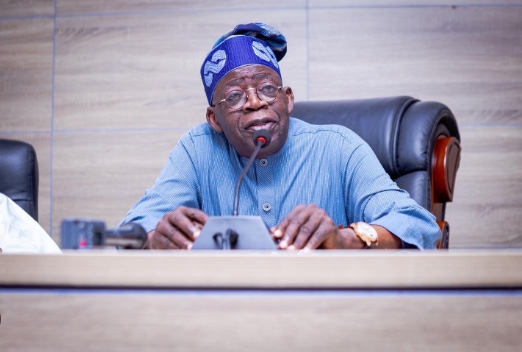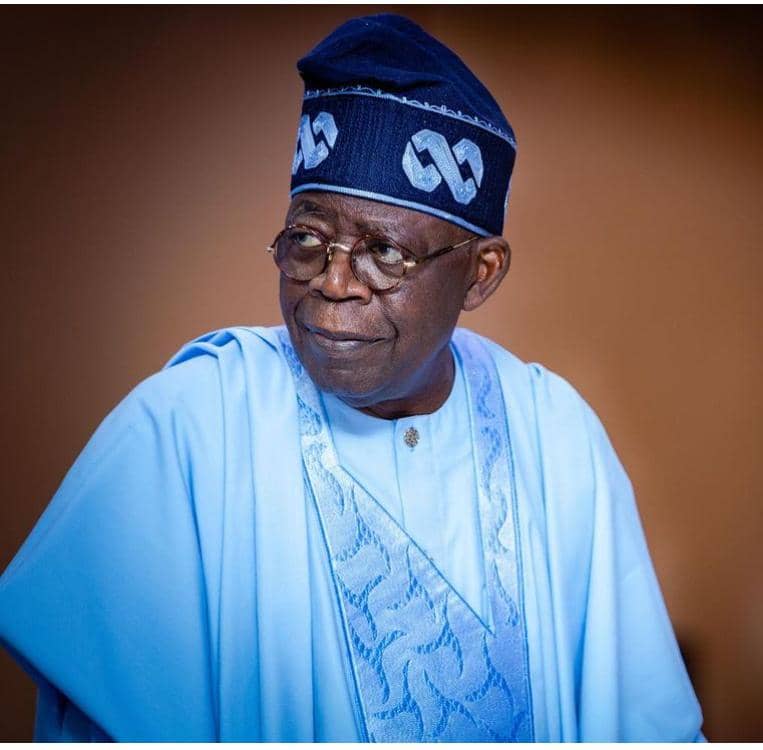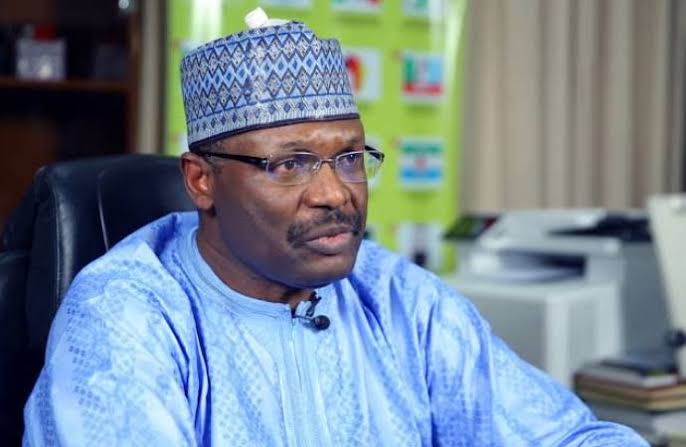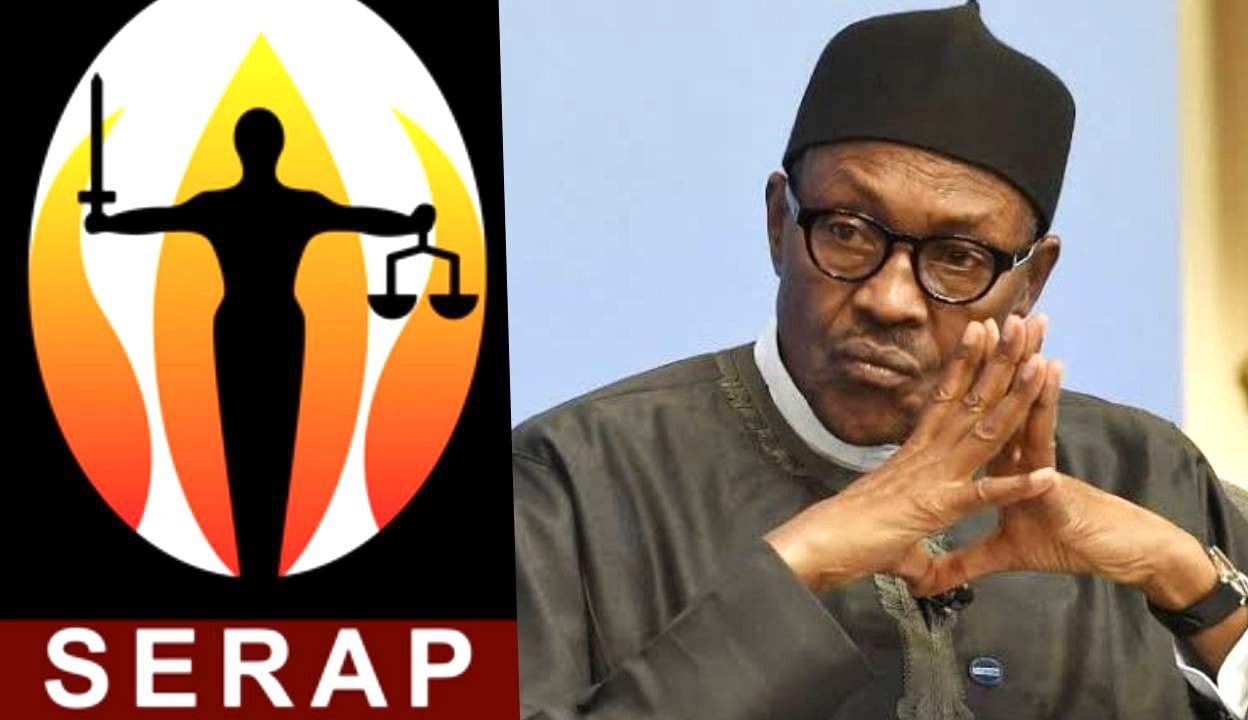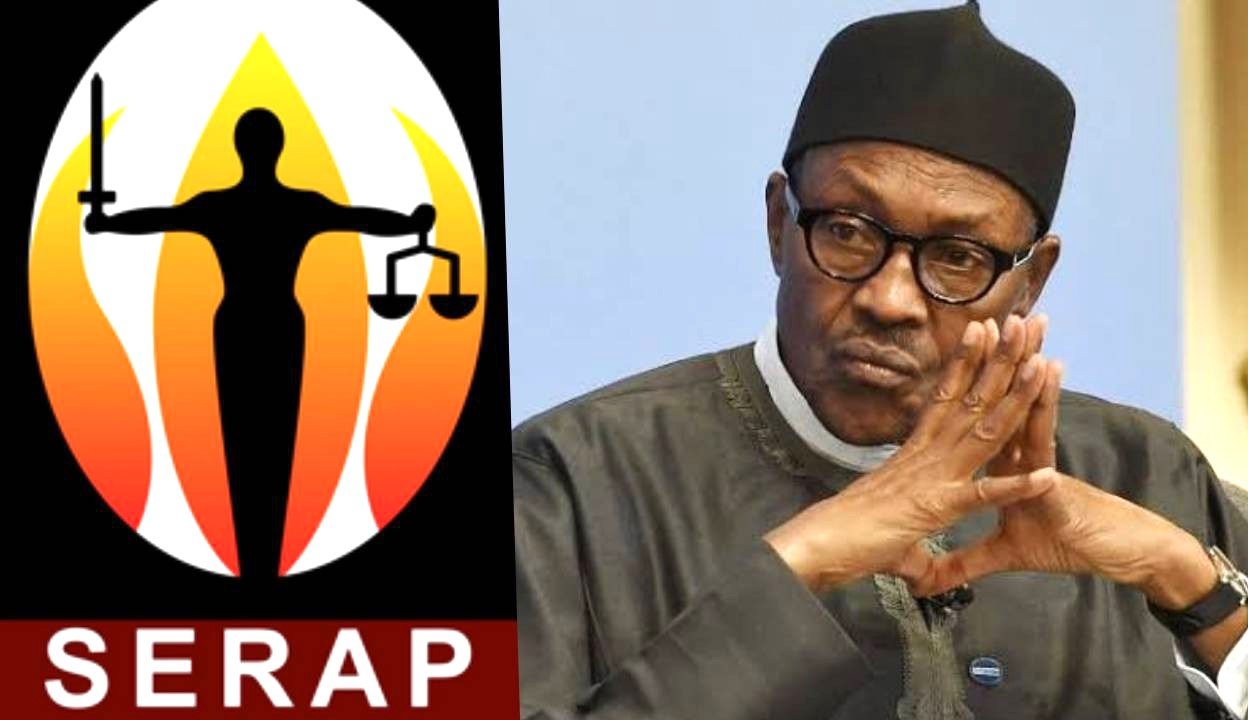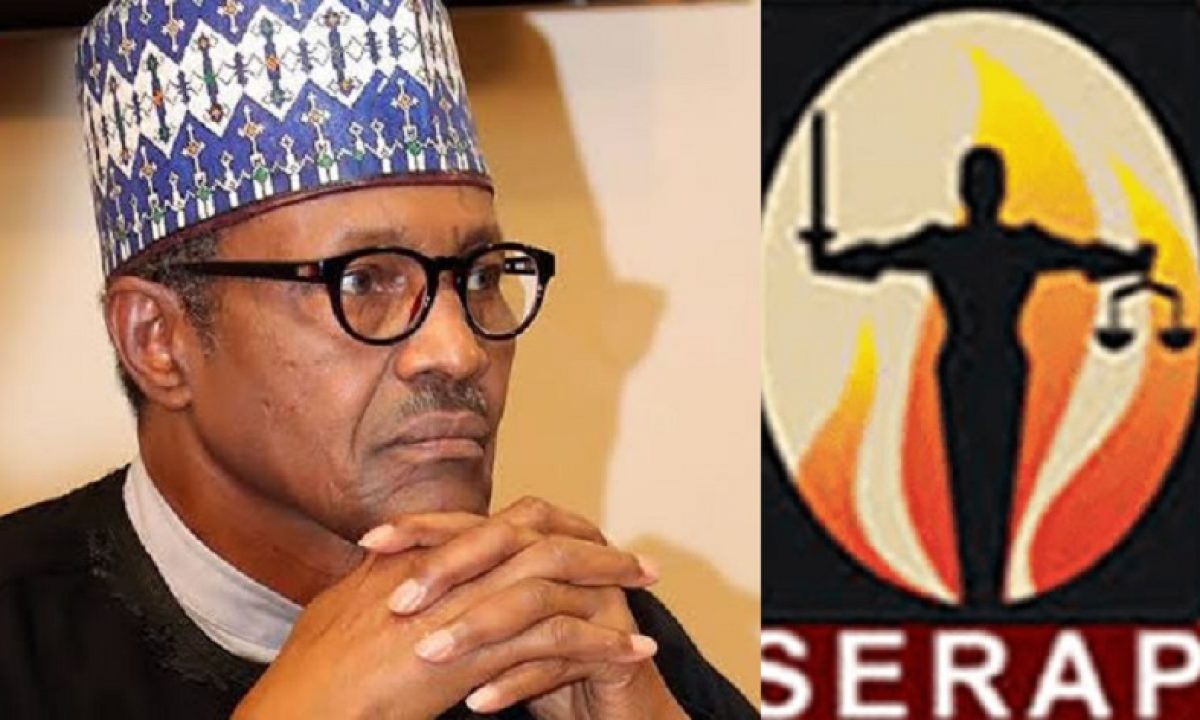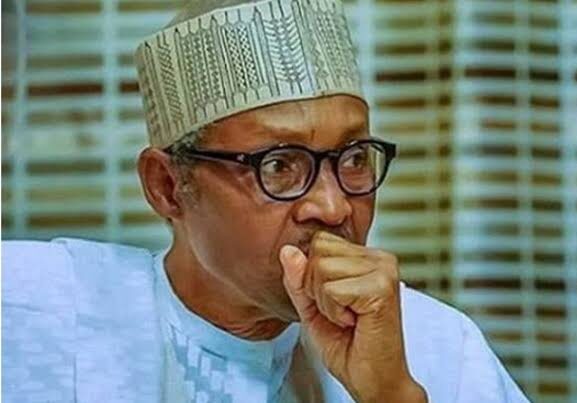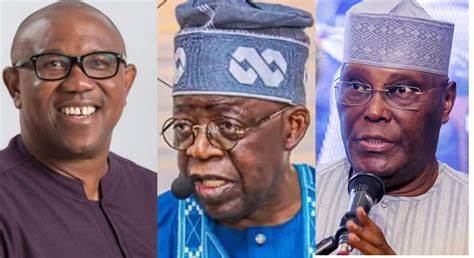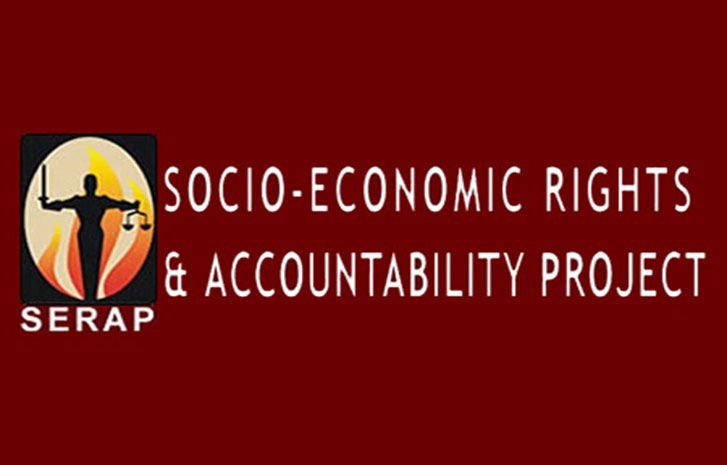Socio-Economic Rights and Accountability Project (SERAP), has warned President Bola Tinubu to either probe funds declared missing under the administration of his predecessor, Muhammadu Buhari or face legal consequences.
SERAP In the letter dated 3 June 2023, and signed by its deputy director Kolawole Oluwadare, urged Tinubu to name and shame anyone suspected to be responsible for the alleged widespread and systemic corruption in the use of oil revenues and the management of public funds budgeted as fuel subsidy.
The letter, read in part:
“Any removal of fuel subsidy should not be used as a ploy to keep the poor in poverty while those who allegedly stole oil revenues and fuel subsidy payments keep their ill-gotten wealth.
“Allegations of corruption in oil revenues and fuel subsidy payments suggest that the poor have rarely benefited from the use and management of the revenues and payments.
“Poor and socio-economically vulnerable Nigerians should not be made to continue to pay the price for the stealing of the country’s oil wealth while state and non-state actors pocket public funds.
“We would be grateful if the recommended measures are taken within 3 days of the receipt and/or publication of this letter. If we have not heard from you by then, SERAP shall take all appropriate legal actions to compel your government to comply with our request in the public interest.
“The proposed panel should be headed by a retired justice of the Supreme Court or Court of Appeal, and its members should include people with proven professional record, and of the highest integrity that can act impartially, independently, and transparently.
“A comprehensive approach that prioritises accountability and full recovery of missing crude oil and public funds is required to address the problems of the implementation of fuel subsidy since 1999.
“According to the audited reports between 2016 and 2019 by the Auditor General of the Federation (AGF), the Nigerian National Petroleum Corporation (NNPC) failed to remit N663,896,567,227.58 into the Federation Account. The Auditor-General fears that the money may be missing.
“The NNPC also reportedly failed to account for the allocation of crude oil to refineries in 2019. 107,239,436.00 barrels of crude oil were lifted as domestic crude without any document. The Auditor-General fears that the crude valued at N55,891,009,960.63 may have been diverted.
“The NNPC in 2019 also failed to remit N1,955,354,671,268.66 and N55,157,702,848.74 of generated revenues into the Federation Account, contrary to Section 162(1) of the Nigerian Constitution 1999 [as amended]. The Auditor-General fears that the money may have been diverted.
“The NNPC also failed to account for N4,572,844,962.25 of ‘domestic gas receipts’, thereby ‘reducing the distributable revenue in the Federation account.’ The Auditor-General wants the money remitted.
“The NNPC also in 2019 failed to account for 22,929.84 litres of PMS pumped from refineries and valued at N7,056,137,180.00. The Auditor-General fears that the PMS may have been diverted.
“The NNPC also ‘illegally classified’ 239,800 barrels of crude oil valued at N5,498,045,220 as ‘crude oil losses.’ The Auditor-General fears that the crude oil may have been diverted.
“The Department of Petroleum Resources (DPR) in 2019 also reportedly failed to remit US$1,278,364,595.49 in revenue to the Federation Account. The money was deducted by the NNPC from the Oil and Gas Royalty assessed by the DPR.
“The DPR in 2019 also deducted N19,840,081.29 as ‘stamp duty’ payments from contractors and consultants but the DPR instantly paid back the money to the contractors and consultants instead of remitting it to the treasury.
“The DPR in 2019 also paid N137,225,973.35 to contractors and consultants for various contracts and consultancies but failed to deduct stamp duty. The Auditor-General wants the money recovered.
“The DPR also paid N11,856,088,271.92 as salaries for 2019 but failed to deduct N118,560,882.72 as contribution of 1% Industrial Training Fund (ITF). The DPR in 2019 also failed to transfer US$35,738,342.95 year balance. The Auditor-General wants the money recovered and remitted.
“The DPR in 2018 also withdrew without any explanation US$759,387,755.10 from DPR Signature Bonus Account rather than paid the money into the Federation Account.
“Subsidy records show that N443,940,559,974.80 was paid as total subsidy for 2016 but the money was not budgeted for. The payments were for outstanding Petroleum Support Fund (PSF) commitments for year 2015.
“However, there was no payment in 2016. Only outstanding payments for previous years 2014 and 2015 and interest payments were made in 2016.
“The Auditor-General fears that the oil marketers that received the subsidy payments may not have been ‘eligible to draw from the Petroleum Support Fund as the Petroleum Products Pricing and Regulatory Authority (PPPRA) failed to provide any document on the payments.’
“N39,141,210,181.74 was also paid from the Federation Account in 2016 to different Oil Marketers in 26 transactions, being Payments of Interest and Foreign Exchange Differential on Subsidy but without any document.
“The NNPC also made ‘zero profit’ and recorded ‘losses from its joint ventures in 2016. This is contrary to expectations that profits should be made from the joint ventures.’
“The Ministry of Petroleum Resources, Abuja in 2016 paid N14,490,000.00 for the supply of 3 Nissan Almera Saloon vehicles 1.5 to the Ministry without proper documentation. The purchase of ‘the vehicles were made through direct procurement without competitive bidding by at least three companies, as required by Financial Regulations. There was no advertisement and bidding for this contract.’
“Although ‘N12,442,500.00 was approved by the Bureau of Public Procurement for the vehicles, the Ministry made an overpayment of N2,047,500.00 to the car company.’
“SERAP urges your government to prioritise getting to the bottom of these allegations and ensure accountability for these serious crimes against the Nigerian people.
“Promptly investigating and naming and shaming suspected perpetrators and recovering any missing public funds would advance the right of Nigerians to restitution, compensation and guarantee of non-repetition.
“Section 13 of the Nigerian Constitution imposes clear responsibility on your government to conform to, observe and apply the provisions of Chapter 2 of the constitution. Section 15(5) imposes the responsibility on your government to ‘abolish all corrupt practices and abuse of power.’
“Under Section 16(1) of the Constitution, your government has a responsibility to ‘secure the maximum welfare, freedom and happiness of every citizen on the basis of social justice and equality of status and opportunity.’ Section 16(2) further provides that, ‘the material resources of the nation are harnessed and distributed as best as possible to serve the common good.’
“The UN Convention against Corruption and the African Union Convention on Preventing and Combating Corruption to which Nigeria is a state party obligate your government to effectively prevent and investigate the plundering of the country’s wealth and natural resources and hold public officials and non-state actors to account for any violations.
“Specifically, article 26 of the UN convention requires your government to ensure ‘effective, proportionate and dissuasive sanctions’ including criminal and non-criminal sanctions, in cases of grand corruption.
“Article 26 complements the more general requirement of article 30, paragraph 1, that sanctions must take into account the gravity of the corruption allegations.”


